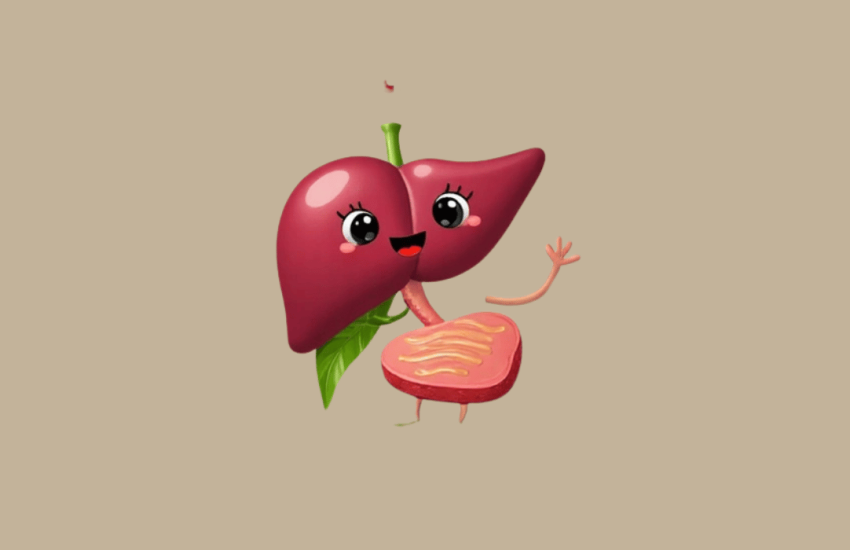12 Facts About Farting That Might Interest You
Farting is a natural part of life, yet it’s often surrounded by giggles and embarrassment.
In this listicle, we’ll unravel the science behind this bodily function and uncover some surprising benefits and facts about farting that you may not be aware of.
From the digestive system’s intricate workings to the health benefits of letting it out, we have you covered.
Join us as we delve into the fascinating world of farting and discover why it shouldn’t be a taboo topic!
1. Farting is Completely Natural
Farting is a normal biological process that occurs in everyone, and it’s nothing to be ashamed of.
The human body produces gas as a byproduct of digestion, and this gas needs to be expelled. On average, a person passes gas about 14 to 23 times a day!
This natural occurrence is essential for maintaining digestive health, as it indicates that your digestive system is functioning properly.
So the next time you find yourself in a social situation, remember that everyone else is likely experiencing the same thing. In fact, being able to let it all out can help you feel lighter and more comfortable.
2. The Science Behind Farting
Farting is a result of a complex digestive process that begins when you eat.
As food is broken down in the stomach and intestines, gases are produced from the fermentation of undigested carbohydrates by bacteria in the gut.
These gases can include nitrogen, oxygen, carbon dioxide, hydrogen, and even methane!
Understanding this process helps to demystify why certain foods lead to more gas production than others, including beans, lentils, and cruciferous vegetables.
By knowing which foods trigger gas, you can better manage your digestive health and avoid uncomfortable bloating.
3. Farting Can Indicate Digestive Health
Your farting habits can reveal a lot about your digestive health.
For instance, excessive gas can be a sign of an underlying issue such as lactose intolerance, celiac disease, or irritable bowel syndrome (IBS).
Conversely, a decrease in gas production could indicate a lack of fiber in your diet or slow digestion.
By paying attention to your farting frequency and odor, you can gain insights into your body’s needs and make necessary dietary adjustments.
Consulting with a healthcare provider can further help in understanding any digestive irregularities.
4. The Role of Diet in Farting

What you eat plays a significant role in how much you fart.
Foods that are high in fiber, like beans, whole grains, and vegetables, can lead to increased gas production as they are fermented by gut bacteria.
On the other hand, processed foods with low fiber content may result in less gas but can hinder digestive health overall.
Incorporating fermented foods, such as yogurt and kefir, can also promote a healthy gut microbiome, potentially balancing farting frequency and odor.
Understanding the relationship between diet and gas can empower you to make healthier choices for your digestive system.
5. Farting Can Be Beneficial
Believe it or not, farting has its benefits!
Letting gas out can relieve bloating and discomfort, making you feel more at ease.
Moreover, passing gas is a sign that your gut bacteria are functioning well, as they break down food and produce beneficial gases.
Interestingly, some studies suggest that certain gases produced during digestion may even have protective effects against conditions like colon cancer.
Thus, farting can be a sign of a healthy digestive system and should be embraced rather than shunned.
6. The Smell of Farts: What’s in a Scent?
The odor of farting can vary greatly, influenced by the foods you consume and the bacteria in your gut.
While most gas is odorless, certain foods, particularly those high in sulfur like eggs and cruciferous vegetables, can result in particularly pungent farts.
Interestingly, the smell of farts can also reflect the presence of certain compounds that may be beneficial to health, as some studies suggest that hydrogen sulfide—a gas present in some farts—can help protect cells from damage.
So, while some farts may clear a room, they can also carry unexpected health benefits!
7. Farting and Gender Differences
Interestingly, studies have shown that men tend to fart more than women, both in frequency and volume.
This could be attributed to differences in diet, lifestyle, and even psychological factors.
While women may produce less gas, they often experience more discomfort due to societal pressures around bodily functions.
Understanding these differences is essential in promoting a healthy dialogue about farting, encouraging everyone, regardless of gender, to feel comfortable discussing their digestive health.
Ultimately, it’s a shared human experience that transcends gender boundaries.
8. The Impact of Stress on Farting
Stress can significantly impact your digestive health and, consequently, your farting habits.
When you’re stressed, your body may react by slowing down digestion, leading to gas buildup and discomfort.
Conversely, stress can also cause some individuals to pass gas more frequently due to heightened anxiety or changes in eating habits.
Finding healthy ways to manage stress, such as exercise, meditation, or spending time outdoors, can help improve your overall digestive function and reduce gas-related woes.
Taking care of your mental health is just as important as looking after your gut!
9. Farting and Age
As we age, our bodies undergo various changes that can affect farting patterns.
Older adults may experience an increase in gas due to slower digestion and changes in gut bacteria composition.
Moreover, certain medications can also impact gas production.
Understanding these changes can help older adults better manage their digestive health, potentially leading to dietary adjustments or discussions with healthcare professionals.
Ultimately, being aware of how aging affects farting can promote healthier aging and improved quality of life.
10. Farting in Different Cultures
Cultural attitudes toward farting vary widely around the world.
In some cultures, farting is viewed with humor and is openly accepted, while in others, it can be seen as rude or disrespectful.
For instance, in certain Asian cultures, farting is sometimes considered a compliment, implying the person enjoyed the meal.
Understanding these cultural differences can help foster greater appreciation for the diverse ways humans interact with their bodily functions.
Ultimately, recognizing that farting is a universal human experience can help break down social barriers.
11. The Myth of Silent but Deadly
The phrase ‘silent but deadly’ leads many to believe that quiet farts are the worst.
In reality, the odor of a fart is determined by its composition, not its volume.
Some loud farts can be relatively harmless, while quieter ones may carry a potent smell due to the presence of sulfur compounds.
This myth can lead to unnecessary embarrassment and fear surrounding farting.
Understanding that sound and scent don’t always correlate can empower individuals to embrace this natural bodily function without shame.
12. Farting as a Form of Communication
Believe it or not, farting can serve as a form of non-verbal communication.
In social settings, a well-timed fart can evoke laughter and break the ice, creating a sense of camaraderie among friends.
This natural bodily function can spark conversations about health, diet, and the importance of being comfortable in one’s skin.
Embracing the humor of farting can help alleviate social tension and promote a more relaxed atmosphere.
So, the next time you find yourself in an awkward moment, remember that a little laughter might just be the best medicine.
Conclusion
Farting is not just a humorous bodily function; it’s an essential aspect of digestive health that deserves attention and understanding.
From its benefits and cultural significance to its role in indicating health, embracing the topic can lead to better conversations about our bodies.
So, the next time you or someone around you lets one rip, remember that it’s just a natural part of being human!



